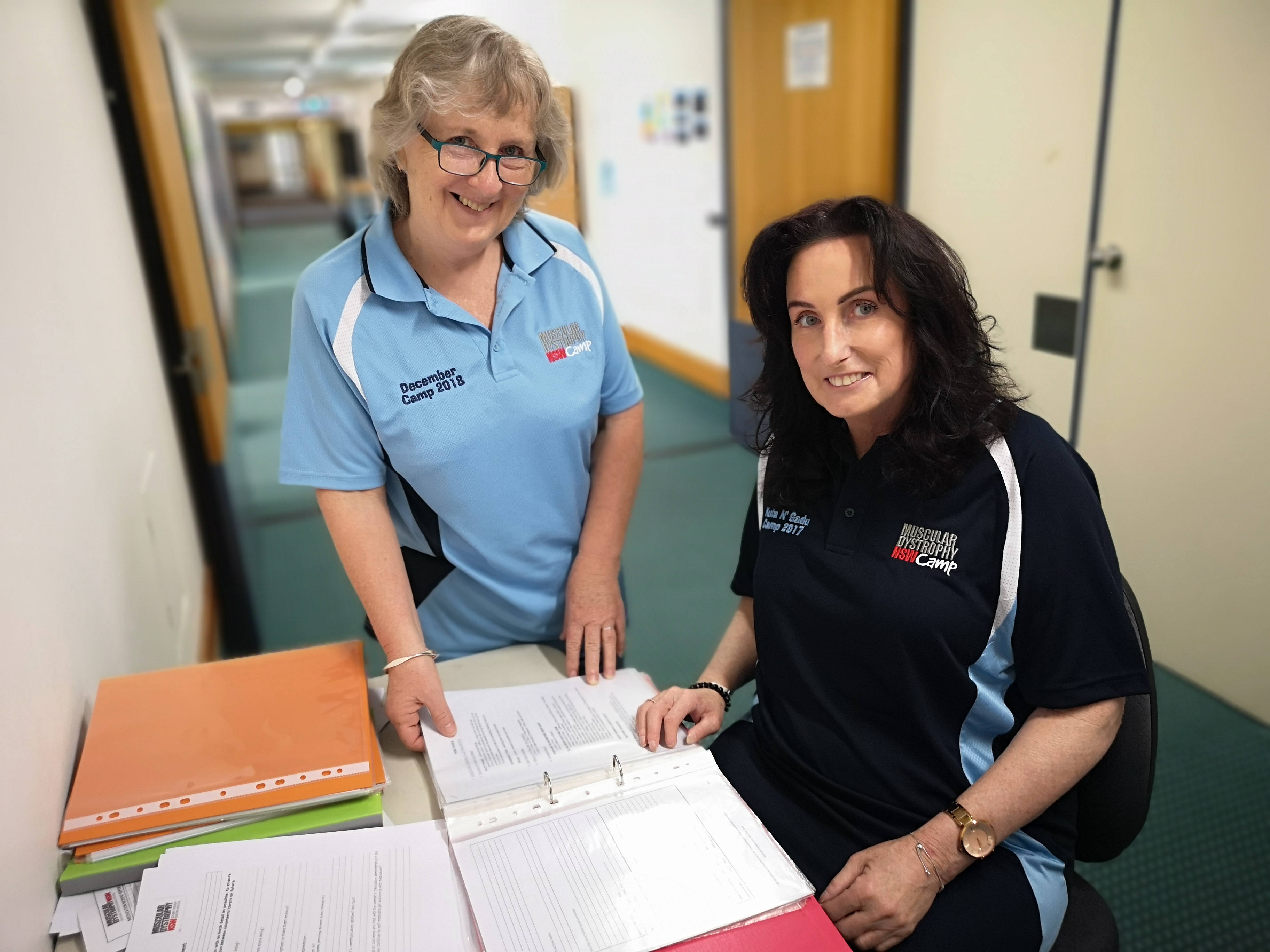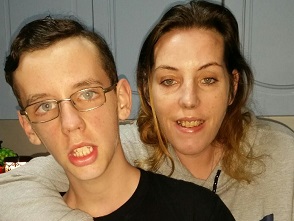Interview with a Grandmother – A Family Story Part 2

Anne-Maree Warman shares the second part of her conversation with MDNSW Project Officer Carolyn
What programs or services has your family been able to access?
Through having contact with MDNSW, we’ve actually met another person who has the condition. Emma was able to go on a weekend retreat where she met another adult with Myotonic MD – that was really important for her. Emma could relate to her and say, “…this has happened to me” and hear, “Oh that’s normal, that’s happened to me before too.”
It’s very funny too because although Emma and Blake have the same condition, things have happened differently for each of them. Blake has different things to how Emma has presented. So it’s pretty unique and individual. Other than our family, we’ve never really had any connection with other people with MD. But just hearing their story and hearing about how they felt about stuff, what sort of things they had noticed, you learn so much from other people and their experiences. And knowing that you’re not alone as well, that there are other people with similar conditions.
The NDIS, too, has opened up a lot of avenues for us as a family. Services are very expensive, so it’s allowed us to have things that we’ve probably only ever dreamed of, or would never have been possible otherwise.
What sort of things? Is she doing certain therapies?

Yes she’s having regular physio because of her muscles, and remedial massage. She’s also able to get out and about in the community, she has a support worker who comes in and takes her shopping because she still wants to do those things. Emma has her workers come in to do her cleaning for her, and she has a nice relationship with them as well, so it gives her time to have a chat with somebody different, have a cup of coffee and go out a little bit as well.
That’s terrific, so that only happened since the NDIS?
Most definitely, yes. And also with my grandson Blake, we’ve really taken the NDIS on-board as much as we can. It’s just allowed him so many more opportunities. He has speech therapy at school once a week, which has brought him along in leaps and bounds. He’s part of an organisation called Dancing Hearts, which is a dancing group, and he goes twice a week. He loves his dancing, so he goes there with a support worker.
Is Blake at school?
He goes to a mainstream school, in a support unit. His speech therapist goes to the school so that’s easier for him. He does a work experience program at Bunnings now he’s 16, and he also has a support worker who picks him up and takes him horse riding each week.
Horse riding? That sounds fun.
Yes, that’s with Riding for the Disabled, and because Blake would like to pursue a career working with horses, he’s actually done it all last year and the education department have actually allowed him to have that day as part of his community access.
So that’s something else that’s been possible through NDIS, the support worker again picks him up and takes him. Also his activities with MDNSW, the Adventure Camp and Boccia events have been fantastic for him, which he really looks forward to. Vacation care, he doesn’t go all the time but it gives him the opportunity to go out and do different things in the school holidays.
That sounds great, sounds like you’ve all gotten a bit more support in the past few years.
Yes and Blake’s now coming to an age where he’s learning about his body……we’ve got all the questions there! He’s now being booked into a sexual education lesson which goes for 8 weeks that’s run through Northcott and its specialised trainers that can help him learn.
What a journey. How about you Anne-Maree, as a grandmother? There must have been ups and downs along the way. What would you say to other family members if there are people who have a diagnosis that might run through their family or their children have been diagnosed? What would you say to them?
Look, just take one day at a time. Find the people that can help you straight away. Don’t think, oh we’ll look at that later, or there’s no physical symptoms or, we’ll be alright – because things can happen quickly and can deteriorate rapidly. So try to find the answers, find the organisations that can help you because that’s where you’ll get the support. And they will understand the things that you are going through. It’s easy for someone to say “I know exactly how you feel, I can understand that” – but they don’t really understand, they’ve never been through it.
Don’t try to take on everything. As a mother or a grandmother, you feel you can fix everything… but you can’t. Yeah, and I think that’s what you have to come to terms with sometimes as a parent.
And sometimes life is about not fixing things, but actually learning to live with them, dealing, coping…?
Yes, coping and learning different strategies on ‘how will I deal with that?’ This is what we’re facing now, so this is how we’ll deal with it. And that’s probably the best learning experience. I think too you need to layer, in my case my daughter and my grandchild, I want to layer them with the right people in their lives. As parents we’re never going to be here forever, so I want to know that Emma has the connection with MDNSW and other services, Blake has that connection with MDNSW, that they’re never alone.
Read Part 1
More information:
